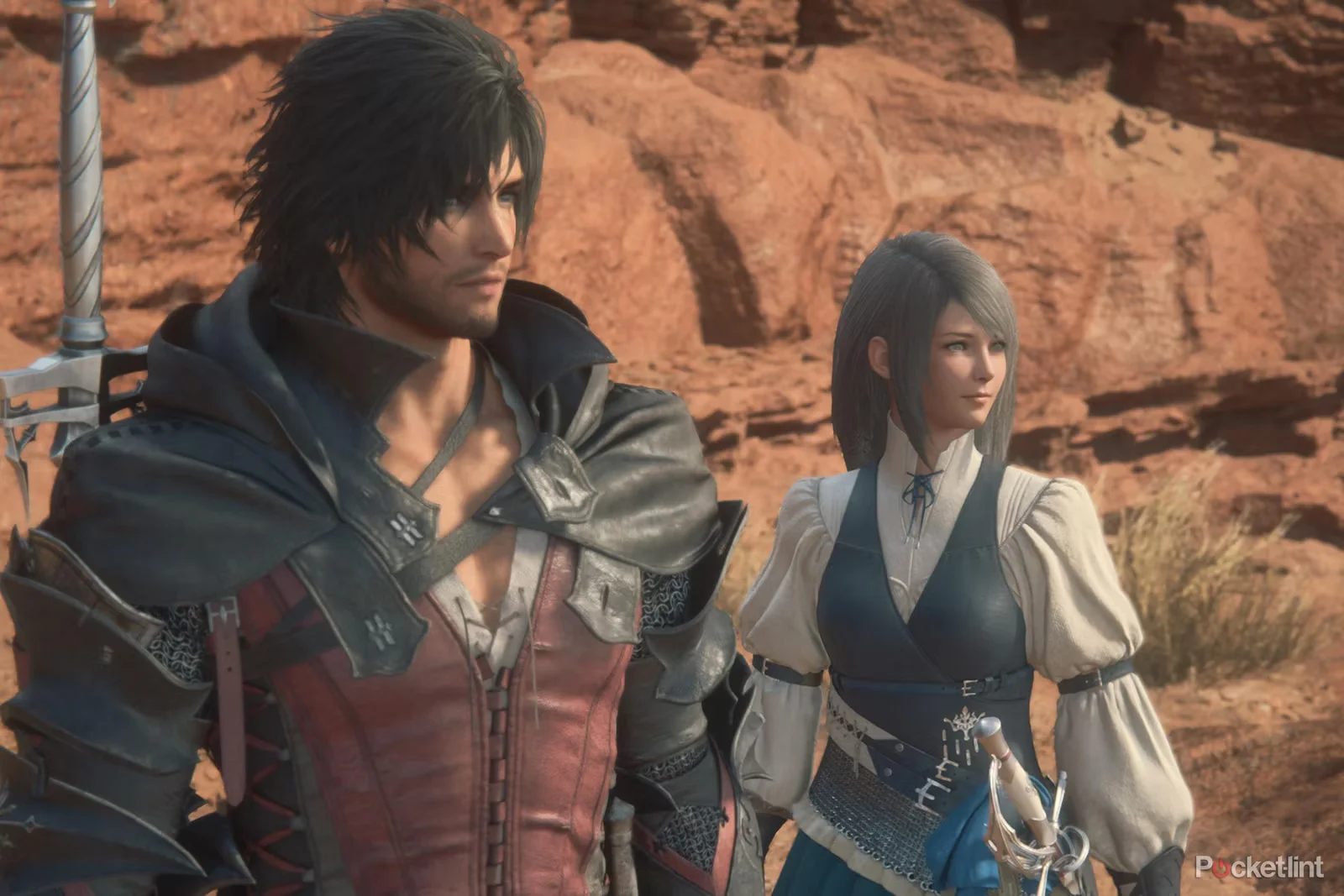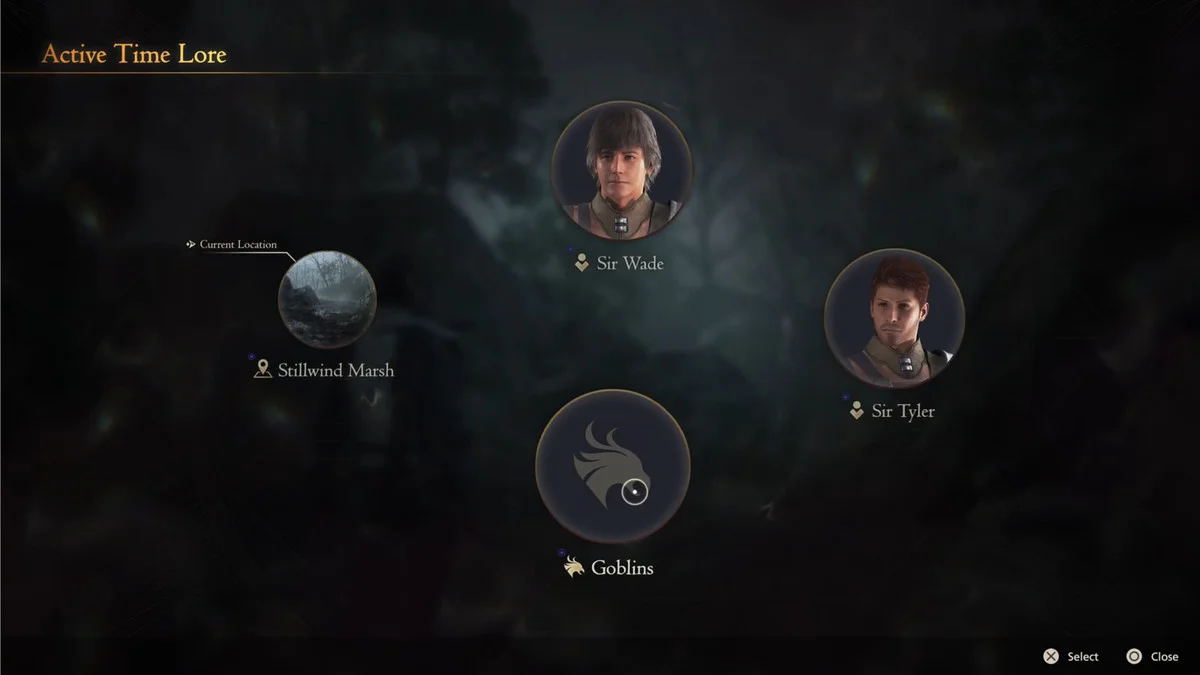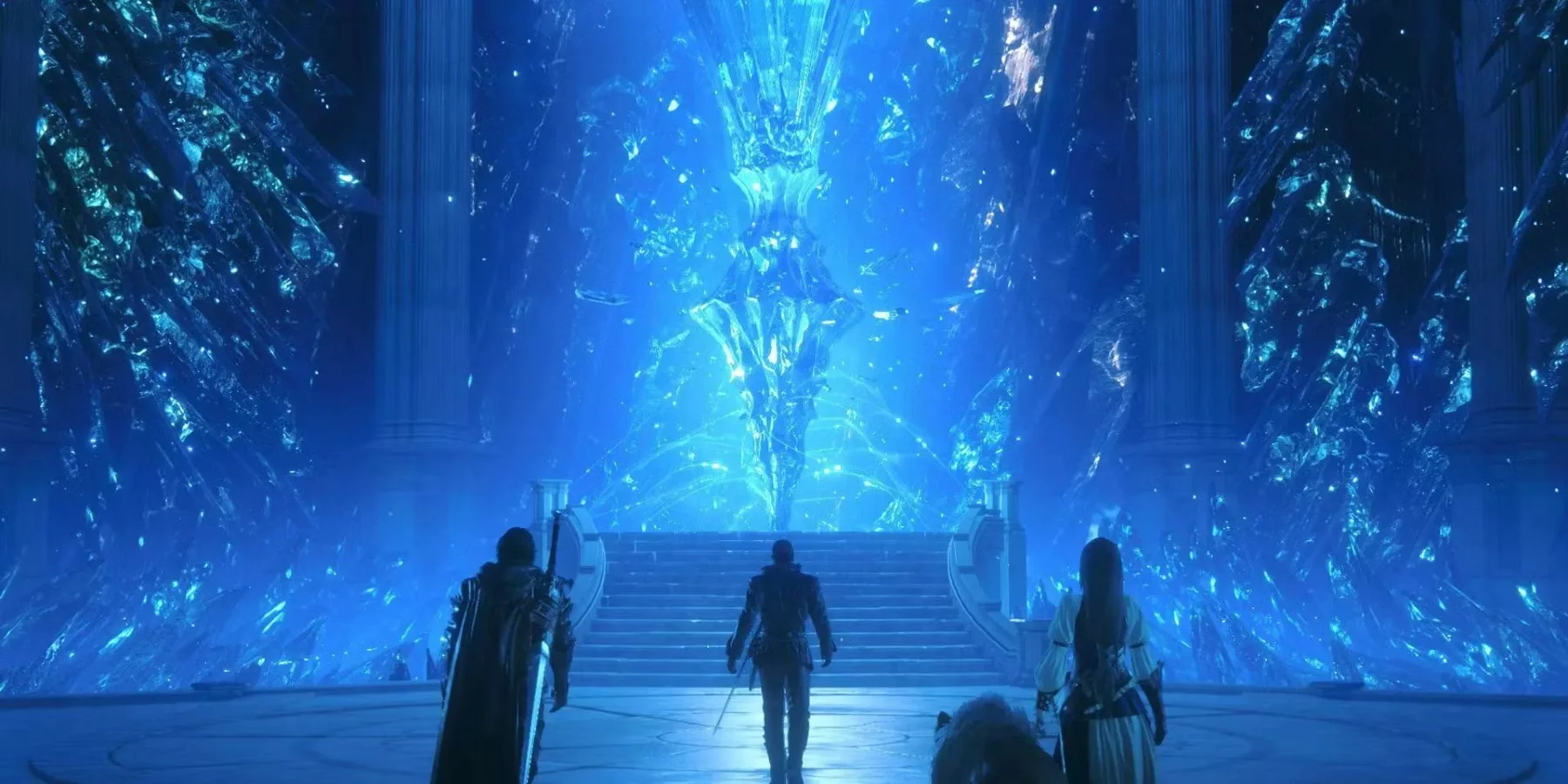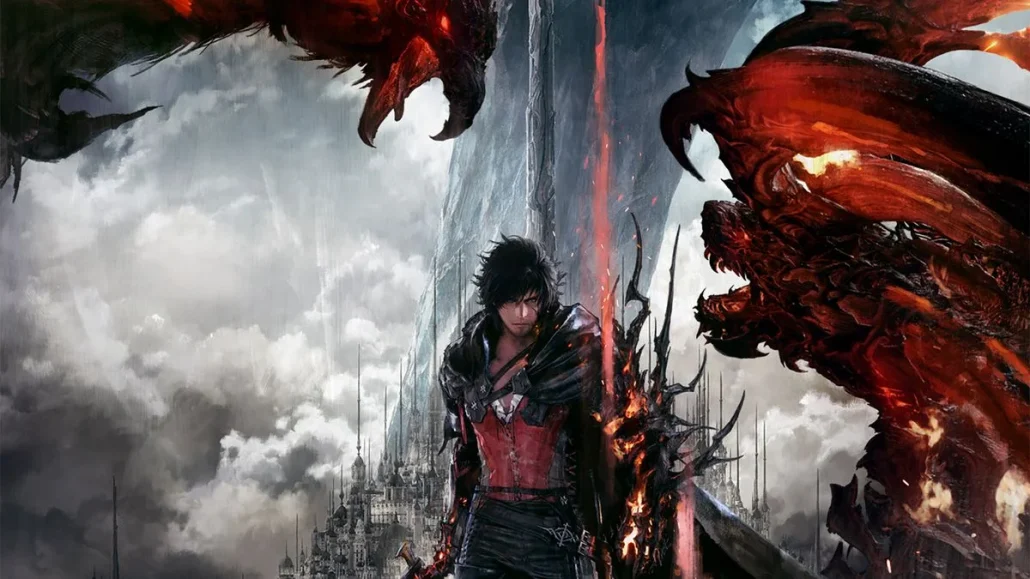So, Final Fantasy XVI has been released, the latest entry in an immortal franchise. The hypothetical “Final Fantasy XXVII” poster in Deus Ex: Human Revolution might someday become a reality. For a franchise that has been going on for so long, with entries that have the flimsiest connections with each other, Final Fantasy XVI seems to be most radically different. One look at the game’s gameplay and cutscenes is enough to notice this difference.
Final Fantasy XVI | The Odd One Out
The game is the most different in two aspects:
`1. The iconic turn-based franchise has been replaced by a fast-paced flashy real-time combat system reminiscent of Devil May Cry, which is no wonder because the combat director of the game is Ryota Suzuki from Capcom, who was responsible for the combat design of DMC 5.
- The setting and the story have a strong “Western fantasy” and “dark fantasy” vibe, with the game being heavily influenced by Game of Thrones and, to a lesser degree, The Lord of the Rings.
Final Fantasy XVI belongs to the unique category of “Western fantasy made by the Japanese”, to which other games like Dragon Dogma and Dark Souls also belong to.


The question is: what stopped Square Enix from naming Final Fantasy XVI something else? The way the game looks and feels, it could be a new IP. Considering how deep and extensive the lore and world-building in the game is, it did have the potential.
Does Final Fantasy have an Essence?
This question brings us to a fascinating discussion about what exactly is the essence of a Final Fantasy game. This is a question that Ed Nightingale, a writer at Eurogamer, also wondered about Final Fantasy 16 has me questioning the essence of the series.
In answer to that question, Koji Fox, a translation director, has said: “You have these threads that go throughout the series, you have your Moogles, you have your spell names, you have your weapon names, and there are all those callbacks to everything that don’t require any prior knowledge, but for someone that has played the past ones, they can enjoy it doubly.”
Naoki Yoshida, the producer, has answered: “I think, for me, that Final Fantasy is all about making that cinematic experience. You think back all the way to the original Final Fantasy on the original Nintendo Entertainment System; you start, you play the game a little bit, you get to a certain point, and then you finally get that opening scene. And that truly cinematic experience separates itself from other games and makes it like a movie.
I remember it being very shocking for me when I played it when I was younger for the first time. And so, in Final Fantasy 16, we pretty much did the same thing; that inspired us. So you play the game for the first around two hours. And then you’ll finally get the title screen because we were inspired to reproduce that in Final Fantasy 16.”


As it’s clear from these answers, what is considered “Final Fantasy” can vastly differ from person to person. For one person, it’s all the little easter eggs that the games share; for another, it’s the cinematic feeling.
Final Fantasy XVI certainly has callbacks to its predecessors. There’s a moogle in the game, and Final Fantasy tropes, like the name of big attacks, are being shown on screen. But these are not hard things to include. The game feels cinematic, with boss battles reminiscent of God of War 3’s epic battles with huge monsters.
The problem is that all of the things that make Final Fantasy games “Final Fantasy” are loose qualities you can relate to many different games. For example, I asked Chat GPT what qualities the Final Fantasy game shares, and these are the 10 points it listed:
- Fantasy Setting
- Role-Playing Gameplay
- Turn-Based Combat
- Character Development
- Epic Storytelling
- Summoning and Magic
- Crystals and Themes
- Airships and Chocobos
- Iconic Music
- Evolution and Innovation
Of these, only 2 elements are exclusive to Final Fantasy: 1. Crystals 2. Chocobos. (And crystals play an important role in Final Fantasy XVI’s story). Other games could easily share other elements. For example, a fantasy role-playing game with an ensemble cast of characters who develop intimate relationships with each other and engage in an epic story about defeating evil using summoning powers and magic (among other things) could easily be the hallmarks of a Bioware game.


Final Fantasy: A Franchise Like No Other
However, the last point (Evolution and Innovation) is important in understanding Final Fantasy. Final Fantasy’s winning quality has been its adaptability ever since its inception. The fact that this franchise doesn’t have any defining quality is the reason why it has managed to continue being relevant for so long. Final Fantasy XIV was a quirky MMORPG. Final Fantasy XV was about a group of friends going on road trips and taking selfies. Final Fantasy XVI is a dark fantasy firmly rooted in a medieval setting, a setting so serious that there is a literal history teacher in the game teaching its history and geography to you. Final Fantasy can be all these things, and that’s its strength.
So to answer the question in the title: Final Fantasy XVI is neither a step in the right or wrong direction. It’s a step in a new direction. So the fans that say this game doesn’t “feel” like Final Fantasy are missing the point of the franchise. When you are playing a Final Fantasy game, all you can expect from it is to be an epic emotional journey in a fantastical world featuring all sorts of loveable characters. At this point, since even turn-based combat cannot be considered an intrinsic quality of FF games, the name “Final Fantasy” is a mark of production value for a Japanese fantasy game, nothing more.
You see a game carrying this title, and you can safely assume: “They spent a lot of money and time making this. I can sink my teeth into it” The fact that Final Fantasy XVI is a dark, serious fantasy inspired by Game of Thrones, with a DMC-style combat system, is fine. Even if you don’t think it’s fine, there’s no reason to worry because judging by the pattern this franchise follows, the next installment will follow a bold new direction, completely different from this one. You might love it or hate it. But no one has any idea what Final Fantasy XVII could be, and that’s what Final Fantasy is all about.


